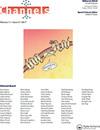The Successes and Failures of the Battle of Mogadishu and Its Effects on U.S. Foreign Policy
IF 3.2
3区 生物学
Q2 BIOCHEMISTRY & MOLECULAR BIOLOGY
引用次数: 2
Abstract
The Battle of Mogadishu, more commonly referred to as “Black Hawk Down,” was one of the most controversial conflicts in the second half of the twentieth century. It left a lingering question in people’s minds: was it a success or a failure? While certainly there were many failures and casualties throughout the mission, based on a military definition, it was a clear cut success; Task Force Ranger (TFR) accomplished the objective of the mission, despite significant losses, by retrieving the two targets assigned them. Both the failures and successes of the mission, as well as the overarching Operation Restore Hope in Somalia, however, have impacted U.S. foreign policy and strategies for three presidential administrations. The question is not whether the events throughout the battle impacted foreign policy and strategy. Rather, the question is how significantly they were affected. Arguably one of the largest American special operations missions in recent history, the events of the battle have been thoroughly examined by the United States government and military in order to effect change in both realms. Examples found in places such as Rwanda, Bosnia, and Darfur point to a refusal by the United States to commit ground troops in an unstable situation, providing air support at a maximum. Following the foreign policy failure within Somalia in the early 1990s, except for the situation in Iraq/ Afghanistan, the United States has refused to act as the global police force it was so well known to be in the 20th century. This paper will attempt to prove that both the successes and failures of Operation Restore Hope and Operation Gothic Serpent directly caused this change in foreign policy.摩加迪沙战役的成败及其对美国外交政策的影响
摩加迪沙战役,通常被称为“黑鹰坠落”,是20世纪下半叶最具争议的冲突之一。这在人们心中留下了一个挥之不去的问题:这是成功还是失败?虽然在整个任务中肯定有许多失败和伤亡,但根据军事定义,这是一次明显的成功;尽管损失惨重,特遣突击队(TFR)还是完成了任务目标,夺回了分配给他们的两个目标。然而,这次行动的成败,以及在索马里的“恢复希望行动”的成败,都影响了美国三届总统任期内的外交政策和战略。问题不在于战争中的事件是否影响了外交政策和战略。相反,问题是它们受到的影响有多大。可以说,这是美国近代史上规模最大的特种作战任务之一,美国政府和军方已经对这场战斗的事件进行了彻底的研究,以便在这两个领域产生改变。在卢旺达、波斯尼亚和达尔富尔等地发现的例子表明,美国拒绝在不稳定的局势中派遣地面部队,只提供最大限度的空中支援。继20世纪90年代早期在索马里的外交政策失败之后,除了伊拉克和阿富汗的局势之外,美国已经拒绝扮演它在20世纪众所周知的全球警察部队的角色。本文将试图证明“恢复希望行动”和“哥特蛇行动”的成功和失败都直接导致了这种外交政策的变化。
本文章由计算机程序翻译,如有差异,请以英文原文为准。
求助全文
约1分钟内获得全文
求助全文
来源期刊

Channels
生物-生化与分子生物学
CiteScore
5.90
自引率
0.00%
发文量
21
审稿时长
6-12 weeks
期刊介绍:
Channels is an open access journal for all aspects of ion channel research. The journal publishes high quality papers that shed new light on ion channel and ion transporter/exchanger function, structure, biophysics, pharmacology, and regulation in health and disease.
Channels welcomes interdisciplinary approaches that address ion channel physiology in areas such as neuroscience, cardiovascular sciences, cancer research, endocrinology, and gastroenterology. Our aim is to foster communication among the ion channel and transporter communities and facilitate the advancement of the field.
 求助内容:
求助内容: 应助结果提醒方式:
应助结果提醒方式:


